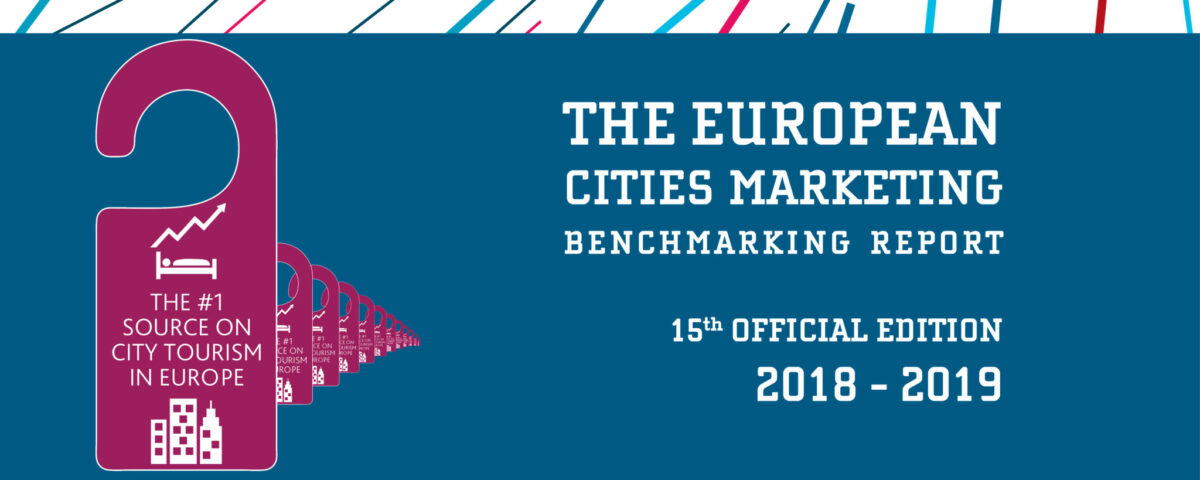European Cities Marketing Benchmarking Report 2019 shows continuous growth of European city tourism

The ECM Benchmarking Report determined that European cities continued their development in 2018 with an average growth rate 4.2% increase in total bednights compared to 2017. The 15th edition of the European Cities Marketing Benchmarking Report includes 119 European cities and provides benchmarking insight into bednights sourced from Europe’s main markets as well as analyses of city tourism compared to national tourism, bed supply, occupancy, and tourism densities.
“The growth in total bednights is lower than the previous year at 7.4%, and since a sustainable visitor economy is the common goal of European Cities, we take this as a sign of a healthy development.”, comments Petra Stušek, ECM President.
The source markets that grew most in 2018 are China (+9.6%), Spain (+8.5%), and the United States (+6.4%). Between 2014 and 2018, the US source market is the most dynamic one with an average growth of 9.4% in bednights, of which 64.1% are in ECM report cities.
Top Performing Cities
The growth in terms of bednights is also related to the growth rate of top performing cities. Of these top performing cities, Istanbul showed an increase of more than 20%, followed by Munich and Paris that showed an increase of more than 9%.
Table 1. Top 15 European Cities – Total Bednights 2018
| Destination | Total Bednights 2018 | 2017-18 % change | |
| 1 | London* | 71,163,839 | -8.7% |
| 2 | Paris* | 52,546,339 | 9.2% |
| 3 | Berlin | 32,869,156 | 5.5% |
| 4 | Rome* | 28,549,101 | 3.1% |
| 5 | Istanbul | 20,983,823 | 20.3% |
| 6 | Madrid* | 19,832,390 | 3.0% |
| 7 | Barcelona* | 19,293,683 | 2.7% |
| 8 | Prague | 18,249,084 | 1.1% |
| 9 | Vienna* | 17,412,927 | 6.0% |
| 10 | Munich* | 17,124,486 | 9.3% |
| 11 | Amsterdam* | 16,944,000 | 6.9% |
| 12 | Stockholm* | 14,594,719 | 3.9% |
| 13 | Hamburg | 14,529,549 | 5.1% |
| 14 | Milan | 12,286,276 | 3.7% |
| 15 | Lisbon* | 10,758,765 | 0.9% |
*Refer to cities with different definitions and data rectifications.
Source: European Cities Marketing Benchmarking Report 2018
Petra Stušek, continues: “The past five years have shown a positive average annual growth rate of bednights in both the ECM report’s cities (+4.1%) as well as in the EU28 nations (+4.0%). City tourism bednights have again surpassed national tourism bednights, proving cities are the dominant geographical focus of European tourism, especially for short break and congress and/or convention‘s segments.. Some of the foreign markets observed in the report are definitely more attracted by European Cities than the countries taken as a whole: 88.8% of Japanese tourists in Europe stayed in 2018 in ECM cities whereas, 10.3% German tourists stay in ECM report cities.”
The dynamism of the European cities considering tourism as an economic leverage, combined with the competition of new destinations, can explain the 2018 growth. The main factors that influence tourism demand in Europe include increasing volatility within the past years, political and economic crisis (including Post-Crisis Year developments), security issues, airline connectivity, and economic recovery in the long-haul markets, such as Japan. Moreover, recent developments in tariffs, of which the trade war between the US, China, and Europe, can also influence the future of travel in the world, since they are expected to affect the world economy.
The ECM Benchmarking Report (#1 source of city tourism statistics) is free for members of European Cities Marketing and can be ordered from http://www.europeancitiesmarketing.com/ecm-benchmarking-report
**ENDS**